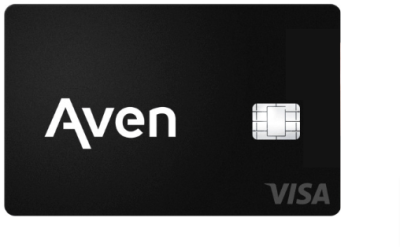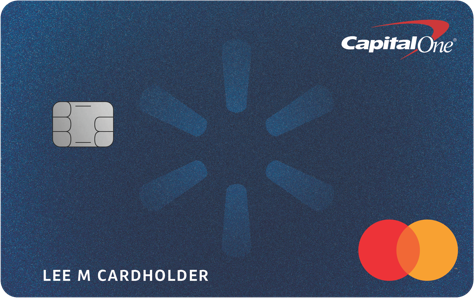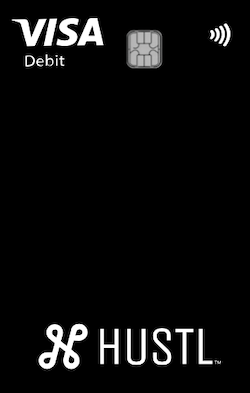CardsFTW #100: Is it a Fintech Crisis?
Plus, Walmart Credit Card Updates and Interesting New Products
Thank You

Today’s issue of CardsFTW marks issue 100! I’ve been publishing CardsFTW since September 22, 2020. Over the years, there were some hiatuses and some increasingly solid stretches of consistent weekly writing, like the past 12 months.
Thank you to everyone who reads, subscribes, shares, comments, and supports through a paid membership. Thank you to my friend Peter for encouraging me to start in the first place and to the entire team at Totavi, Ellen, Jessica, and Julia, for helping me by editing, commenting, and more. I’m looking forward to the next 100 issues!
Aven Update

Last week I mentioned Aven’s points for mortgage payments feature. If you’d like to apply for the card, the company directed me to http://aven.com/mortgagecashback to open applications.
Is it a Fintech Crisis?
It’s starting to feel like a sponsor bank crisis if you read the news. From American Banker to Fintech Business Weekly reporting on the increasing pace of consent orders for fintech sponsor banks. Klaros Group’s Jonah Crane posted a helpful chart on LinkedIn. We’re doing our best at Totavi to keep up with our U.S. Sponsor Bank Tracker. Every week, it seems another consent order (or two!) is announced. What’s happening? Is it a crisis?
I don’t know that it’s as bad as everyone says. Fifteen years ago, major sponsor banks such as Metabank (now Pathward) and The Bancorp Bank were under consent orders to improve their business. Both banks have survived and thrived over the years as they improved their capabilities. While seeing some of the more storied names in the space, like Sutton Bank, receive orders this past week, it surprised me; it all feels cyclical. There are more orders than in past cycles, but there are also many more fintech programs and many more sponsor banks than there used to be.
My more sanguine view isn’t to say that these orders aren’t deserved. I expect many more or that a number of fintech sponsor banks have private orders or memoranda we haven’t heard about yet. All this will dampen fintech activity. I was speaking to someone the other day about their sponsor bank (who doesn’t have an order), and they said, “They’re just so slow, and they say no to things.” Yes, well, that is the point. The banks who are going to survive are the ones who are going to say “no.” Just because you have an idea doesn’t mean it’s legal.
The Information posted extensive reporting about fintech darling Mercury skirting regulations. I understand some of the stated desire by founders to make the system easier for people like them (in this case, helping foreign founders get U.S. banking), but some of these things simply aren’t allowed. When your product is an attempt at regulatory hack, there is going to be pushback, and today, that pushback is going to be stronger.
There are so many awesome opportunities to build new fintech products and card-based account products. Companies do not need to break the rules, onboard users in blocked locales, or skimp on AML monitoring. A recent focus is the overuse of the FDIC insurance statements on card products. I get it: it’s hard to use a word other than “banking,” but figure it out! Call it a card account. Read the disclaimers legally required of a company like Chime and copy them! If you think your success is based on using the FDIC logo really big, I would say that there is something else wrong with your product.

The final point here is that so many companies and founders want to build something for very little money and with very little oversight. Tough. Banking is hard. If you don’t want all of your marketing reviewed, don’t build a banking product. If you don’t want to pay $5,000 to $10,000 per month in minimums and fees, which in turn go to the compliance oversight, then don’t build a banking product. Fintech products can be lucrative, but there is a price to entry, as there should be. Moving money is a high-risk act, it isn’t for everyone or every idea.
I don’t think fintech is in a full crisis, although I do think we are paying for the sins and overexpansion of the last few years. We will see fallout and consolidation, but I believe we will come back stronger. Let’s keep building great products that don’t push all the limits.
Capital One + Walmart

Banking Dive reported that Walmart has rights within its co-brand card agreement with Capital One to terminate its agreement with the bank. While the Walmart portfolio is quite large, Capital One’s credit business is even larger. I expect some appeals to be filed, but this agreement is over. It’s just a matter of who pays whom, what, and when it ends.
Where will this portfolio go? Walmart has been investing heavily in its captive fintech, One, which offers deposit accounts and a credit builder via Coastal Community Bank. It seems likely that Walmart will want to own the process as much as possible, although a bank like CCB cannot fund the credit receivables of the size that Capital One can. Will another traditional co-brand bank like Synchrony, Bread, or Citibank take this one? The portfolio is likely attractive, given its size, but Walmart is always hard to work with. I’ll be watching closely.
New Product Sightings
I’m always on the lookout for interesting new card products. Two caught my eye this week. Both are fintech-y brands of traditional financial institutions.
Hustl Financial

Vantage West Credit Union announced the launch of Hustl Financial. Hustl carries the branding of a fintech and the career or job-based focus of many fintech companies. In this case, Hustl is aimed at gig workers, like many challenger banking products. Hustl had me thinking of companies like Found. Traditional financial institutions that build products like this likely have an advantage in cost structures, but it remains to be seen if they can innovate at the pace of technology companies.
Andi
The second product that caught my eye was Andi, from Fidelity Bank of Louisiana. (I counted over 15 banks with “Fidelity” in their name on the FDIC listing, so select which Fidelity carefully). To my earlier bit on FDIC insurance, because Andi is a brand of a real bank, they can much more clearly describe their FDIC coverage and use the word “bank” in their name and URL in a way that a non-bank fintech cannot.
Andi strikes me as a millennial or Gen Z-focused banking product and offers debit, credit, loans, and savings products. Some, like the core debit account, appear fully redesigned, while the credit card appears to be a very traditional credit product with no unique interface.
I’m curious why banks want to spin up new brands rather than improve the experience for all of their customers. I also think it is hard to scale these operations without the large amounts of funding fintech companies have for marketing, but we’ll keep watching!
CardsFTW
CardsFTW is a weekly newsletter, released most Wednesdays, that offers insights and analysis on new products in the credit and debit card industry for consumers and providers. CardsFTW is authored and published by Matthew Goldman and the team at Totavi. Totavi is a boutique consulting firm specializing in fintech. We bring real operational experience that varies from the earliest days of a startup to high-growth phases and public company leadership. Visit www.totavi.com to learn more.
